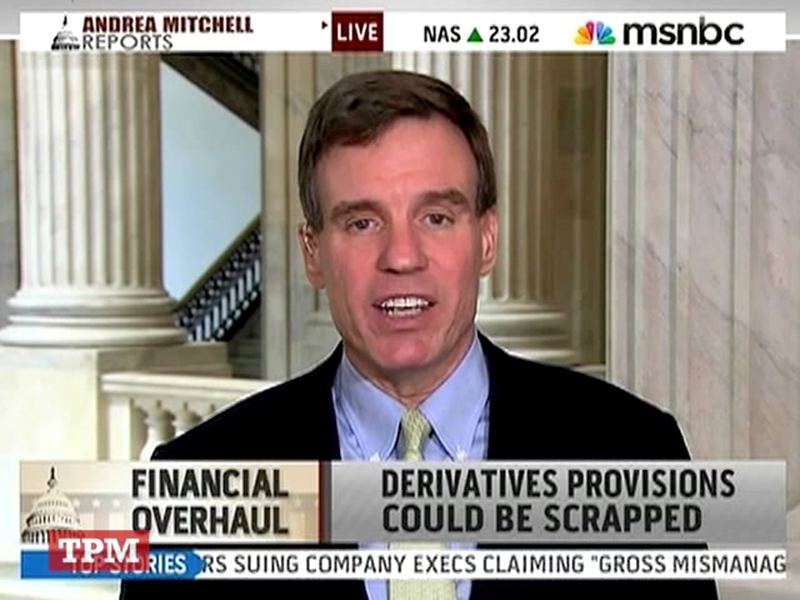They are doing it live–at least according to House Financial Services Committee Chairman Barney Frank.
After a White House meeting with President Obama, and his Senate counterpart Chris Dodd today, Frank told reporters that no changes will be made to Wall Street reform legislation during final negotiations behind closed doors.
“We will have a conference, I think, that will work well. It will be conducted, the formal parts, in public,” Frank said. “That means that no agreements reached, no compromises, which obviously are being discussed, will be made part of anything without being publicly presented and voted on and discussed.”
That could make things uncomfortable for the White House, Dodd, and other key Democrats, who have wanted to scale back a tough derivative trading measure, written by Sen. Blanche Lincoln (D-AR). They’ve tried a couple different times but been prevented from doing so, largely because the politics overwhelmingly favor stronger, not weaker, regulations on Wall Street.
On MSNBC this afternoon, Sen. Mark Warner (D-VA) predicted the measure, forcing financial institutions to spin their derivative trading desks off into separate entities, will be removed or modified.
“To push legitimate derivatives trading out of the bank, where a bank can’t even hedge against some of its currency risk…may have some unforeseen consequences,” Warner said. “I think that we’ll find a way that we can have the goal that Chairman Lincoln wants but still make sure there’s not unforeseen consequences. That’s what part of the conference will be about.”
The point of the spin-off provision is to put a firewall between the risky speculation in the derivatives market and the rest of the financial sector, much of which will now be insured against failure by the federal government. But critics charge that the spin-off provision will not diminish systemic risk, and Wall Street lobbyists say the provision will generate uncertainty for traders and end users.
But that particular debate has largely been lost in the dust kicked up by anti-Wall Street sentiment, and with all eyes on the negotiators finalizing the bill, the question remains whether those that oppose it will be willing to take the political risk of killing it, without replacing it with something equally far-reaching.










